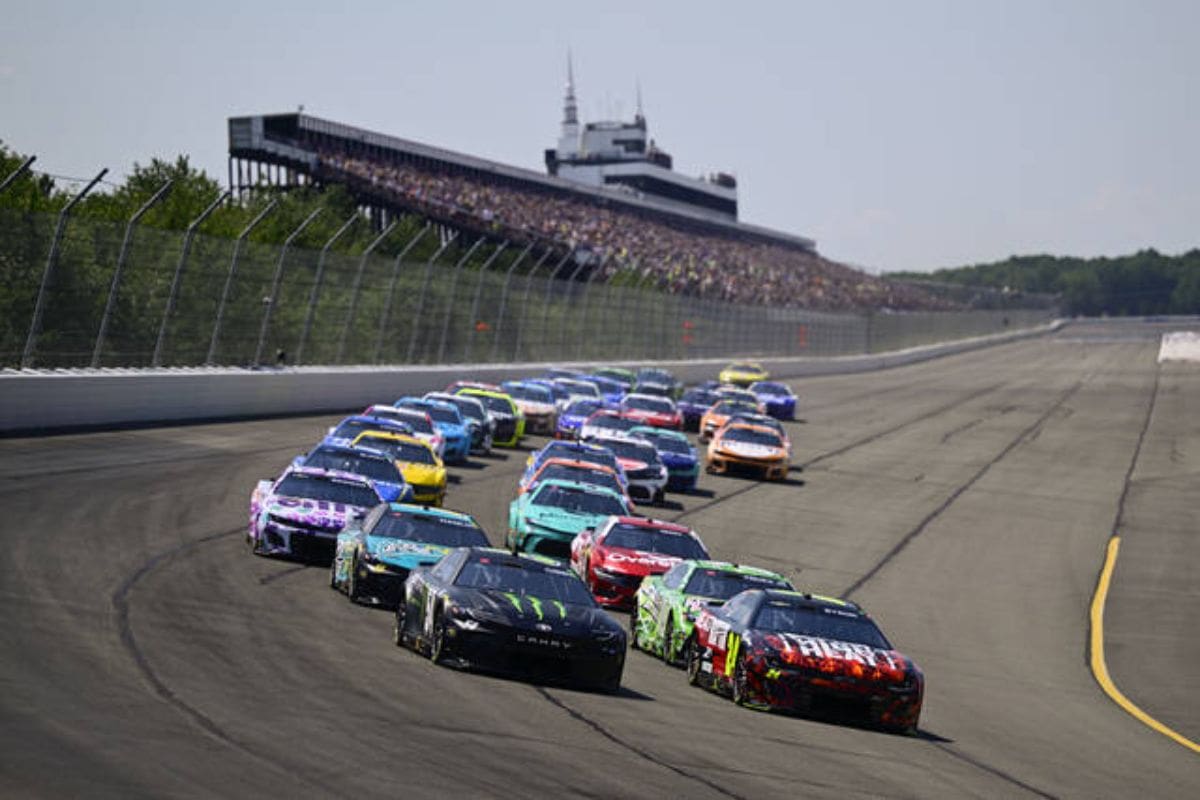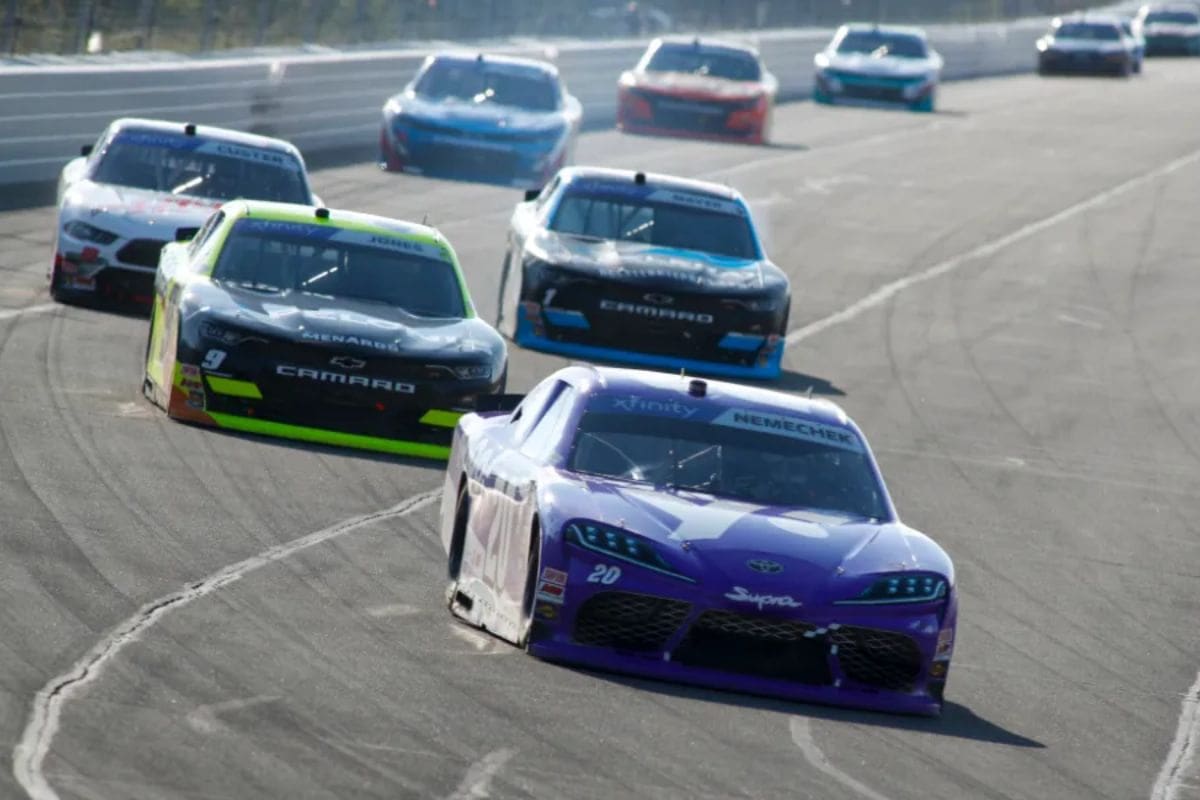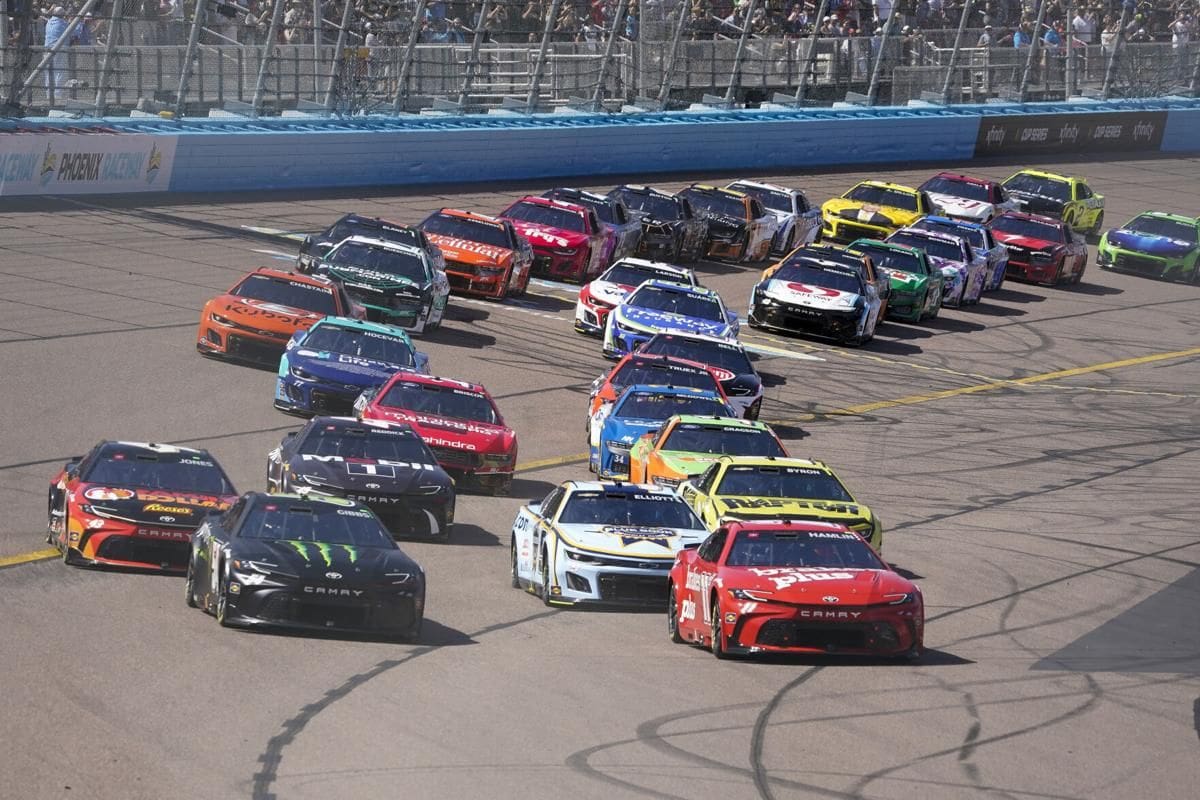NASCAR to Tighten the Purse Strings on Cup Teams: NASCAR’s intentions for significant changes, such as a leadership shake-up and a strategic push for international growth, may pose opportunities and challenges for Cup teams dealing with soaring operational expenses and decreasing profitability. While the ambitious global focus promises new revenue streams and audience diversification, the accompanying financial constraints imposed by NASCAR’s regulations may increase existing fiscal pressures. As teams go through these challenges, the balance between seizing growth opportunities and preserving financial stability will be pivotal. The potential repercussions of these shifts warrant a closer examination of how teams might adapt to maintain their competitive edge.
Key Highlights
- NASCAR’s refusal to grant permanent charters limits teams’ long-term financial security.
- High operational costs and expensive tech upgrades strain team budgets.
- NASCAR’s regulations restrict teams’ financial flexibility and operational autonomy.
- Disagreements over revenue sharing create financial instability for teams.
- Global expansion efforts require adaptation to diverse regulatory environments, adding financial strain.
NASCAR Charter Negotiations
The ongoing NASCAR charter discussions have been characterized by a significant deadlock, primarily influenced by the Team Alliance’s request for a fair share of TV and other revenue sources, along with a push for permanent charters. This standoff emphasizes the intricate dynamics between the governing body and the racing teams, each with vested interests that occasionally differ.
The Team Alliance, representing the collective voice of the Cup Series teams, argues that an increased share of the growing TV revenues is crucial for the sustainability and expansion of the sport. Their position is that the current revenue distribution model does not adequately reflect the financial commitments and risks undertaken by the teams.
On the other hand, NASCAR has shown a willingness to negotiate on revenue distribution, indicating an understanding of the teams’ financial pressures. However, NASCAR remains steadfast in its refusal to grant permanent charters. The existing system, which assigns temporary charters that must be periodically renewed or transferred, provides NASCAR with a level of control and adaptability that it considers necessary for the sport’s fluid and evolving landscape.
Permanent charters, while providing teams with long-term security, could potentially restrict NASCAR’s ability to adjust to future market conditions and operational requirements.
The contrast of these positions highlights a fundamental tension in the discussions: the balance between financial stability for the teams and strategic flexibility for the governing body. As the conversation progresses, the resolution of these issues will likely shape the economic and operational frameworks of NASCAR for years to come.
Financial Challenges for NASCAR Teams
Going through the complex financial landscape, NASCAR teams are increasingly grappling with mounting operational costs and diminishing profit margins. This financial strain is not limited to smaller teams; even established powerhouses like Hendrick Motorsports are finding it challenging to remain profitable. The expenses includes vehicle maintenance, driver salaries, travel costs, and technological advancements, all of which contribute to a significant financial burden.
NASCAR, in response to these challenges, appears assured to implement major changes in the 2025 season aimed at streamlining operations. However, these adjustments are likely to further restrict the operational autonomy of the teams. The intention behind these changes is to create a more sustainable financial model, but the execution may accidentally limit teams’ financial freedom, making it harder for them to innovate or invest in competitive advantages.
One of the primary factors contributing to these financial hardships is the escalating cost of technology. Teams are continually investing in state-of-the-art equipment and software to gain a competitive edge, but this comes at a steep price. Furthermore, the logistical costs associated with transporting teams and equipment across the country further inflate budgets.
While NASCAR’s forthcoming changes aim to alleviate some of these pressures, the tightening of regulations could stifle teams’ ability to manage their finances effectively. Striking a balance between cost control and operational freedom will be vital for the future sustainability of NASCAR teams.
Executive-Level Changes in NASCAR
Facing a landscape of financial challenges, NASCAR is also undertaking substantial executive-level changes to better position the organization for a sustainable future. This restructuring, as detailed in a memo from NASCAR President Steve Phelps, is set to take effect before the 2025 season. The goal is to have a streamlined and efficient leadership team ready to handle the complexities of the evolving sports broadcasting scene and other noteworthy shifts.
Key personnel have been appointed to new roles with expanded responsibilities, reflecting the organization’s dedication to innovation and growth. Among them, Ben Kennedy will ascend to a prominent role as Executive Vice President and Chief Venue & Racing Innovations Officer. Kennedy, who brings a unique perspective as a former Truck Series driver, is expected to drive impactful changes in how NASCAR approaches venue and racing operations.
Brian Herbst (EVP and chief media and revenue officer) will be tasked with overseeing new strategic initiatives, Herbst will play a critical role in aligning NASCAR’s long-term vision with actionable plans.
Tim Clark (EVP and chief brand officer) will be taking on an enriched role to spearhead digital and fan engagement strategies, Clark’s focus will be on leveraging technology to deepen fan connections.
Michelle Byron (EVP and chief partnering and licensing officer) with her new responsibilities will concentrate on enhancing sponsorships and partnerships, ensuring that NASCAR’s commercial interests are vigorous and synergistic.
.@NASCAR is initiating a major restructuring to its business that will result in a more big-picture role for @StevePhelps, a move that is also meant to show teams that it's making changes at a time when it's asking teams to tighten their spending. https://t.co/AemNmGLzSF pic.twitter.com/5HQdoTBYGB
— Adam Stern (@A_S12) July 17, 2024
NASCAR’s Strategic Focus on Global Expansion
The calculated shift towards international racing is assured to greatly improve NASCAR’s global footprint, enabling it to tap into new and diverse markets. The concept, previously tested domestically at high-profile venues such as the LA Coliseum and the Chicago Street Race, has garnered positive reception, laying a promising groundwork for international endeavors.
Steve Phelps, NASCAR’s President, has articulated a clear vision for this global expansion. By focusing on promoting NASCAR’s brand of stock car racing beyond the United States, Phelps aims to boost the sport’s prestige and accessibility worldwide. His recent statement highlights a commitment to a broader strategic vision, one that integrates global outreach into the core of NASCAR’s growth strategy.
“Will allow me to focus more on the strategic vision and global expansion of NASCAR-owned racing properties, which I believe to be the best and most exciting in the world.” – (Phelps)
This tactical pivot is not just about expanding geographical boundaries but also about diversifying the fan base and increasing NASCAR’s competitive edge. By hosting races in international markets, NASCAR stands to attract a new demographic of fans and sponsors, thereby improving its commercial viability and global influence.
The move could also provide a pathway for original race formats and new racing experiences, further setting NASCAR apart from its competitors.
Furthermore, an international presence could foster cross-cultural exchanges and partnerships, enriching the sport’s dynamics and appeal. It represents a bold step toward establishing NASCAR as a powerful global brand in motorsports, with the potential to redefine its identity and influence in the industry.
Challenges Ahead for NASCAR
Exploring the complexities of international expansion, NASCAR encounters substantial challenges, especially in reconciling internal disputes over the new charter agreement. This charter agreement, a key element in NASCAR’s framework, greatly influences the financial and operational autonomy of Cup teams. Without achieving alignment on this vital front, NASCAR’s ambitious changes could be rendered ineffective.
An important aspect of the charter agreement involves revenue distribution among teams. Disagreements over fair allocation of resources can lead to financial instability. Teams demand a more equitable split to guarantee sustainability and competitiveness, yet NASCAR must balance these needs with the overall business objectives.
NASCAR’s regulations are designed to maintain competitive balance and safety, but they can also restrict teams’ operational freedom. The tension between stringent regulatory oversight and teams’ desire for flexibility requires a careful recalibration of policies to safeguard both interests.
As NASCAR ventures into international markets, adapting to diverse regulatory environments and consumer preferences poses a notable challenge. Each new market introduces unique barriers, from logistical issues to compliance with local motorsports authorities, complicating NASCAR’s global strategy.
News in Brief: NASCAR to Tighten the Purse Strings on Cup Teams
NASCAR’s planned transformations, including executive restructuring and global expansion, present a dual-edged scenario for Cup teams. While the pursuit of international growth offers promising avenues for diversification, the accompanying financial constraints and increased operational costs pose notable challenges.
Balancing key ambitions with the economic realities faced by teams is imperative. Effective management of these dynamics will determine the future financial stability and competitive integrity within the sport.
ALSO READ: NASCAR and Disney Collaboration for Die-Cast Cars Inspired by ‘Cars 3’



